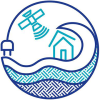Recommendations » For stakeholder groups:
Recommendations for regional entities
On this page
- 1. Support the development of Pacific educational strategies and policies based on the findings from PILNA 2021 and wider sources.
- 2. Resource or implement locally identified activities informed by the PILNA data in collaboration with relevant bodies
- 3. Support, fund and implement research in the Pacific region, based on the PILNA findings
- 4. Review the local education system’s readiness for school closures and continuity of learning measures and provide any required environmental or systemic supports.
Priority areas: How can regional entities support reading performance and formative assessment practices?
SPC-EQAP has identified two priority areas that apply across all recommendations for regional entities: (i) support is needed for student reading performance; and (ii) formative assessment practices. These areas can have substantial effects on student performance.
Regional entities can support student reading performance and formative assessment through all the recommendations given in the sections below: strategy and policy (1); specific activities and interventions (2); research (3); and advocacy (4). They all support these priority areas throughout the Pacific region.
For reading performance, regional entities might also consider:
- facilitating book donations through partner countries, partner charities, twinning schools and hosting book drives;
- facilitating sponsorship of school libraries by local organisations, universities and other groups;
- facilitating celebrations of local authors with book days and events, with students offered copies of the books;
- facilitate events to celebrate World Book Day; and
- facilitating sponsorship of story or poetry-writing competitions.
For formative assessment practices, the most effective activities will likely be working with governments and education institutions to develop and implement formative assessment strategies. Needs assessments, resourcing, and capability-building may also be transformative supports in this area.
1. Support the development of Pacific educational strategies and policies based on the findings from PILNA 2021 and wider sources.
Pacific Island countries may have strategy or policy needs shown by PILNA 2021. These might be in the areas of literacy and numeracy education, gender differences, stakeholder engagement, inclusivity, pedagogy, curriculum, assessment, resourcing, or more.
Regional entities could work nationally or across the region to provide capacity and resources, or build the capability of local partners to support strategy and policy development in these areas.
2. Resource or implement locally identified activities informed by the PILNA data in collaboration with relevant bodies
Regional entities should work with relevant bodies to resource, design, develop and implement activities justified by PILNA findings.
These might be activities to:
- increase student performance, such as supplemental learning for students or professional development for teachers;
- benefit student well-being or students with learning difficulties, such as learner support programmes;
- benefit teacher and school leader well-being, such as teacher support networks;
- address resource challenges, such as investment planning for education systems or schools;
- address possible future continuity of learning needs, such as digital skills, internet infrastructure, or learning material dissemination planning; and
- support monitoring, evaluation, and continual improvement of Pacific education systems.
3. Support, fund and implement research in the Pacific region, based on the PILNA findings
Regional entities should work with local stakeholders to generate new insights based on the PILNA findings.
These might be useful in the areas of student performance differences, marginalised learner groups, the effects of contextual factors on student performance, or the education environment in the region.
4. Review the local education system’s readiness for school closures and continuity of learning measures and provide any required environmental or systemic supports.
External factors have affected learning environments in the Pacific region in recent years. School closures were common due to pandemics, epidemics and natural disasters. Governments are encouraged to review their readiness for school closures and other disruptions that could occur in the future.
Continuity of learning measures are a significant part of readiness in this area and should be assessed. Reviews might also consider the wider environmental and systemic features that influence these areas, such as internet infrastructure that enables online learning.
If you have any questions or comments about these recommendations, please contact SPC-EQAP.
Please also subscribe to our email updates, where we will continue to share suggestions and examples for supporting students and their learning in the Pacific region.








